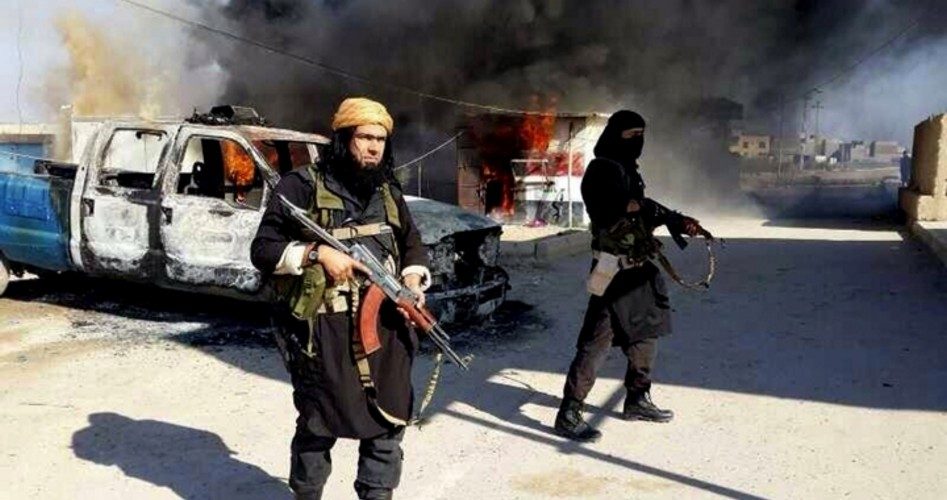
President Obama privately told congressional leaders he didn’t need permission from them to send approximately 300 additional soldier/advisors to help the Iraqi government battle ISIL rebels before announcing the decision in a June 19 press conference. Obama also claimed he had no plans to reintroduce ground troops into Iraq, while Secretary of State John Kerry told the press that using airstrikes against ISIL targets “may well be one of the options that are important.”
ISIL — the Islamic State of Iraq and the Levant — and its leader Abu Bakr al-Baghdadi have fought U.S. and Iraqi government forces in Iraq, as well as Bashir al-Assad’s Syrian government forces in brutal civil wars. A Wahabbist Sunni Muslim organization, ISIL was estimated to have $2 billion in assets before making major territorial gains in recent weeks, which included taking the Iraqi cities of Mosul and Tikrit.
Congressional party leaders have all but given Obama permission to ignore Congress without even a vote of their members. “All of the authorities are there. That doesn’t mean I want all of them to be used, especially boots on the ground,” Nancy Pelosi told reporters after meeting with Obama June 18. “But I definitely think the president has all of the authority he needs by dint of legislation that was passed in 2001 and 2003.”
The 2001 Authorization of the Use of Force allowed the president to go against only “those nations, organizations, or persons he determines planned, authorized, committed, or aided the terrorist attacks that occurred on September 11, 2001, or harbored such organizations or persons.” It’s more than a stretch to claim that the ISIL forces had any direct connection to the forces that carried out the September 11 attacks, and President Obama has not made such a claim.
Of course, the use of bombers is military force, and would — under terms of Article I, Section 8 of the U.S. Constitution — fall under the exclusive power of Congress “to make Rules for the Government and Regulation of the land and naval Forces” and “for governing such Part of them as may be employed in the Service of the United States,” in addition to the power to declare war.
Likewise, the 2002 Authorization of the Use of Force in Iraq — not 2003, as Nancy Pelosi stated — would not apparently grant Obama permission to engage in new airstrikes, as it merely allowed the use of military force to:
(1) defend the national security of the United States against the continuing threat posed by Iraq; and
(2) enforce all relevant United Nations Security Council resolutions regarding Iraq.
In the June 19 press conference, President Obama appeared to stretch the “national security” clause of the Iraq AUMF beyond recognition to justify possible airstrikes, stating that “ISIL poses a threat to the Iraqi people, to the region, and to U.S. interests.” Of course, the term U.S. “interests” is not synonymous with “national security.” Obama noted in the press conference that “we’re prepared to send a small number of additional American military advisors — up to 300 — to assess how we can best train, advise, and support Iraqi security forces going forward. American forces will not be returning to combat in Iraq, but we will help Iraqis as they take the fight to terrorists who threaten the Iraqi people, the region, and American interests as well…. Going forward, we will continue to consult closely with Congress.”
Ironically, the Obama administration requested through press spokesmen back in January that Congress repeal the 2002 Iraqi AUMF. But the recent news that Iraq has already requested that the United States assist the Iraqi government with airstrikes, according to AntiWar.com, means the administration will not likely be pushing the issue on Capitol Hill any time soon.
President Obama, for his part, claimed in the June 19 press conference that he pinned his hopes on “working with an Iraqi government that is inclusive, and us laying down a more effective counterterrorism platform that gets all the countries in the region pulling in the same direction.”
Photo of ISIL rebels: AP Images



